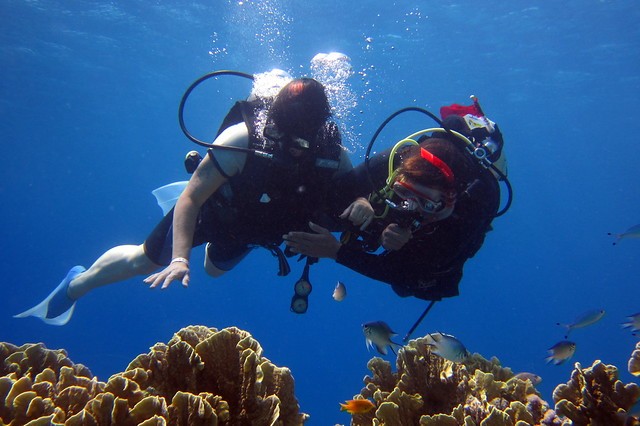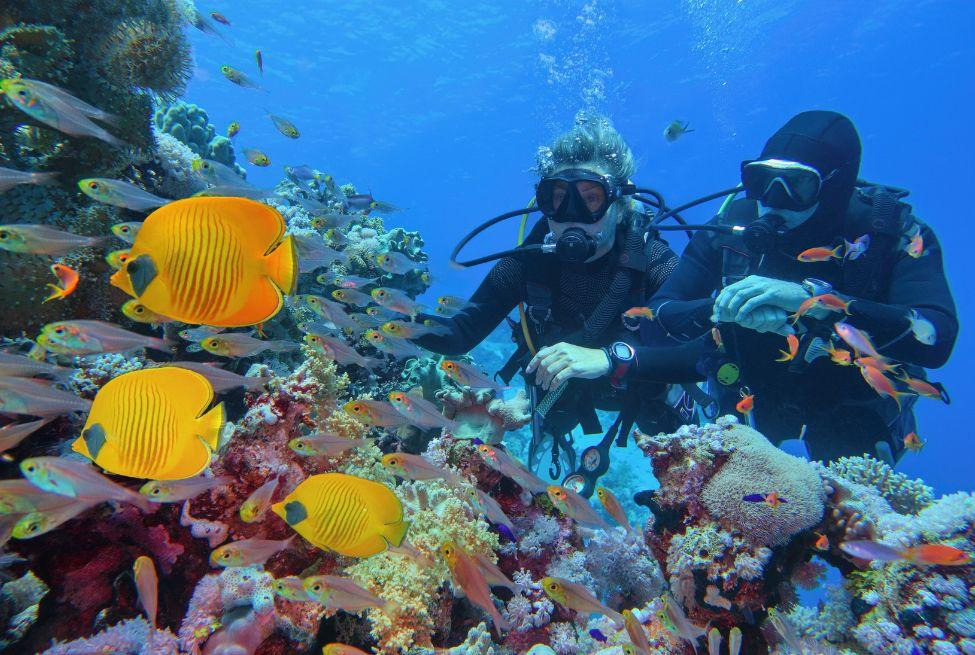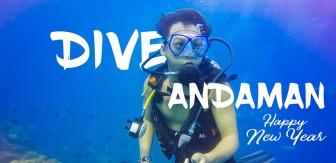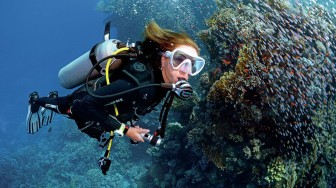Diving Sites in Port Blair




-
May 02, 2023
10 Essential Tips for Safe and Enjoyable Scuba Diving: Exploring the Underwater World
Once a traveler visited a beautiful island and decided to try scuba diving. After receiving the necessary training, he went on his first dive and was immediately captivated by the colorful marine life and the peaceful underwater world. He explored the coral reef, swam with schools of fish, and marveled at the beauty of the ocean. From that moment on, scuba diving became his favorite activity, and he continued to explore the underwater world in different locations around the world.
Scuba diving is an underwater activity that allows individuals to explore the ocean while breathing through a regulator attached to a tank of compressed air. It requires proper training and equipment to ensure safe diving. Scuba diving allows individuals to experience the beauty of marine life and underwater landscapes. Here are 10 things you should know before you go scuba diving.
- Scuba Diving Certification is a Must for Taking the Plunge
Getting certified is a crucial step before attempting scuba diving. Certification involves both theoretical and practical training, where you learn about the various equipment used in scuba diving, how to plan and execute a dive, safety procedures, and emergency protocols. Certification is usually obtained through a recognized scuba diving organization, such as PADI or NAUI, and involves completing several courses, including a beginner's course and an open water course. These courses provide you with the knowledge and skills necessary to dive safely and confidently, and also ensure that you are aware of potential risks and how to manage them.
- A Reputable Dive Center is Crucial for Your Scuba Adventure
Selecting a reputable dive center is important to ensure a safe and enjoyable diving experience. Look for a dive center that has experienced and knowledgeable staff who prioritize safety. It's also important to check their safety record, as well as their equipment maintenance and inspection procedures. A good dive center will also provide you with detailed information about the dive site, including potential hazards, and will ensure that you have the necessary equipment and training before diving. Choosing a reputable dive center can make a significant difference in the quality and safety of your scuba diving experience.
- Physical Fitness is Key to a Safe and Enjoyable Scuba Experience
Physical fitness is an important consideration before attempting scuba diving. Diving requires a certain level of physical fitness to manage the equipment, cope with the underwater environment, and handle emergency situations. Before diving, it's important to assess your own physical health and consult with a doctor if you have any concerns. Pre-existing medical conditions such as heart problems, asthma, and epilepsy can increase the risk of complications while diving. Maintaining good physical fitness through regular exercise can help you build strength and endurance, which will enable you to enjoy your diving experience more comfortably and safely.
- Familiarizing Yourself with Scuba Diving Equipment is Essential for Gearing up for Adventure
Familiarizing yourself with scuba diving equipment is important to ensure that you are comfortable and confident while diving. This includes understanding how to use and adjust your mask, fins, regulator, BCD, and tank. You should also know how to check and maintain your equipment before and after a dive to ensure it is functioning properly. Becoming familiar with your equipment will help you feel more comfortable and in control underwater, making your diving experience more enjoyable and safe. Take the time to learn about your equipment before diving, and don't hesitate to ask your instructor or dive center staff for guidance.
- Checking Your Scuba Diving Equipment Before Taking the Plunge
Checking your scuba diving equipment before diving is essential to ensure that it is functioning properly and will not fail while underwater. This includes checking for any leaks or damage to your mask, fins, regulator, BCD, and tank. It's also important to check that your tank is full and that the air quality has been tested. Proper equipment maintenance and inspection will help prevent equipment failure, which can be dangerous while diving. Before diving, take the time to thoroughly inspect your equipment and make any necessary repairs or replacements to ensure that you can dive safely and confidently.
- Following Standardized Procedures is Crucial for a Secure Scuba Diving Experience
Following safety procedures is important to minimize the risks of scuba diving. This includes using standardized hand signals to communicate with your diving partner or group, conducting a buddy check to ensure that your equipment is functioning properly, and knowing emergency procedures. You should also be aware of your own physical limits and dive within your skill level. Properly following safety procedures can help prevent accidents, injury, and even fatalities while diving. Taking the time to learn and follow safety procedures will help you become a more confident and safe scuba diver.
- Proper Planning for a Safe and Successful Scuba Diving Experience
Planning your dive is important to ensure that you have a safe and enjoyable diving experience. This includes choosing an appropriate dive site and assessing the conditions, planning the depth and duration of your dive, and discussing your dive plan with your partner or group. You should also have a contingency plan in case of an emergency, such as a lost diver or equipment failure. Proper planning will help you avoid potential hazards and ensure that you have a successful dive. Before diving, make sure you have a detailed dive plan and have discussed it with your partner or group.
- Respect Marine Life and the Environment
Respecting marine life and the environment is an important aspect of scuba diving. This includes avoiding touching or disturbing marine life, not removing anything from the underwater environment, and properly disposing of any waste or garbage. It's important to remember that the underwater environment is delicate and should be treated with care to preserve its natural beauty and ecosystem. By respecting marine life and the environment, you can help protect and conserve our oceans and the creatures that call them home. As a responsible diver, it's important to practice good underwater etiquette and leave only bubbles behind.
- Mastering Buoyancy Control is the Key to Safe and Efficient Scuba Diving
Maintaining good buoyancy control is an essential skill in scuba diving. Proper buoyancy control allows you to move smoothly and efficiently underwater, conserve air, and avoid damaging the marine environment. It's important to practice buoyancy control regularly to improve your skills and maintain your control in different diving conditions. This includes controlling your breathing, adjusting your weight system, and using your fins to control your movement. Good buoyancy control will also help you avoid accidental contact with the seafloor, marine life, or other divers. Practicing and maintaining good buoyancy control is an essential part of becoming a skilled and safe scuba diver.
- Stay Alert: The Importance of Situational Awareness in Scuba Diving
Being aware of your surroundings is important in scuba diving to avoid potential hazards and to fully appreciate the underwater environment. This includes watching for changes in the current or water temperature, being aware of other divers in your group, and avoiding potential hazards such as sharp rocks or marine life. It's important to maintain good situational awareness while diving and to be mindful of your own and your group's safety. By staying aware of your surroundings, you can fully enjoy your diving experience while minimizing the risks of accidents or injury.
Diving Sites in Port Blair
Diving Sites in Havelock Island
Diving Sites in Neil Island
.jpg)
.jpg)


.jpg)